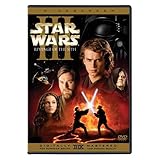
Average Reviews:

(More customer reviews)"I Love You Philip Morris" tells the real life story of Steven Jay Russell, who in 1998 received an unprecedented 144-year prison sentence for fraud, conning, impersonating, and multiple escapes from Houston's Harris County Jail. The film shows us sequences that seem utterly impossible, but in fact actually happened, which only goes to show that truth really is stranger than fiction. No, I will not describe them to you. Enjoying the film depends on the audience's reaction to Russell's actions. It's a little like a magician revealing his secrets; the trick itself is a lot of fun, but seeing what went into making the trick work can be quite fascinating, especially when you realize just how much effort goes into making something look simple. The apparent ease with which he executes his schemes is equally mind boggling.
Jim Carrey's portrayal of Russell is a delightful bag of contradictions. He's funny but touching, exaggerated but believable, contemptible but justified, caring but manipulative. There are times when it seems like he's thinking of no one other than himself, and there are other times when it's clear that he does what he does out of love. It's a daring, complex performance, and it's for reasons other than the fact that his character is gay; it establishes that Carrey is capable of something deeper than outlandish personalities and extreme physical comedy. His take on Russell is engaging, although it's not necessarily understandable. This isn't a criticism. Sometimes, it's preferable for audiences to figure out characters for themselves, for them to put their own spin on why certain people are they are way they are.
We're given a small glimpse of his childhood, in which he learns that he was adopted. We then flash forward to his early adult years; he's married to a woman who's a bit too religious and perhaps a little ignorant but sweet nonetheless, he has a delightful daughter, and he's the manager of a Texas food service company. But after surviving a car accident, he decides to live his life as an openly gay man, and he leaves his family behind for Miami. It's there he realizes that living a gay lifestyle is more expensive than his salary as a sales manager will allow. So he does what any man vowing to live authentically would do - he becomes a conman. After relatively simple schemes like feigning slips and falls in public places, he plunges headfirst into various types of fraud, including credit card, passport, and insurance. He even sells bad tomatoes.
Unfortunately, his crimes catch up with him, and he's arrested and sent to jail in Texas. He learns the ropes quickly; everything essentially boils down to a choice between paying someone off, learning how to fight, or giving someone oral sex. He knows who to talk to and where to guide someone should they need something. He spends all his free time in the library, where he reads nothing but law books. Into his life enters Philip Morris (Ewan McGregor), a soft spoken gay man who was tried and convicted for theft of service. He wants to see if there's a legal way to help an AIDS patient lying in the infirmary. Russell lies and tells Morris that he's a lawyer. The two immediately hit it off. Over the next few weeks, they form their own little slice of heaven in a jail cell, oblivious to the yard beatings and the cell searches.
At this point, I'm going to stop describing the plot, for I want you to be surprised by the lengths Russell will go to be with Morris. I will say that what the film, in its own offbeat way, is surprisingly sweet. Glenn Ficarra and John Requa's screenplay, based on Steve McVicker's book "I Love You Philip Morris: A True Story of Life, Love, and Prison Breaks," reveals a delicate and finely crafted balancing act between humor and drama; it's funny, though it never resorts to desperate slapstick or gross-out vulgarities, and it's heartfelt, yet it steers clear of broad, contrived sentimentalism. It's bold and appealing - a romantic comedy that refuses to follow the rules of a romantic comedy.
Apart from Carrey and McGregor, I was pleasantly surprised by Leslie Mann, who appears briefly but is no less important as Russell's ex-wife, Debbie. Even after learning that he's gay, even after they get divorced, even after he gets sent to jail, the two remain on fairly good terms. This is amazing coming from a woman perpetually hung up on what the Lord does and does not intend to have happen. She believes that Russell is a man who doesn't know who he is and is always searching for something. I guess that makes sense. Why else would he be so reckless in his attempts at pretending to be what he isn't? Part of what makes "I Love You Philip Morris" such a good movie is that it presents Steven Jay Russell without forcing us towards any definite conclusions about him. True, he may be serving an unusually long jail sentence (in solitary confinement, no less), but you have to admit, he is a romantic.
Click Here to see more reviews about: I Love You Phillip Morris (2010)
Jim Carrey stars in the 'outrageously funny" (Rolling Stone) true story of a spectacularly charismatic con man's journey from small-town businessman to flamboyant white-collar criminal, who repeatedly finds himself in trouble with the law and on the lam - all in the name of love. Costarring Ewan McGregor, I Love You Phillip Morris is an unbelievably true comedy that's being called 'the best performance of Carrey's career" (Village Voice).
Click here for more information about I Love You Phillip Morris (2010)


